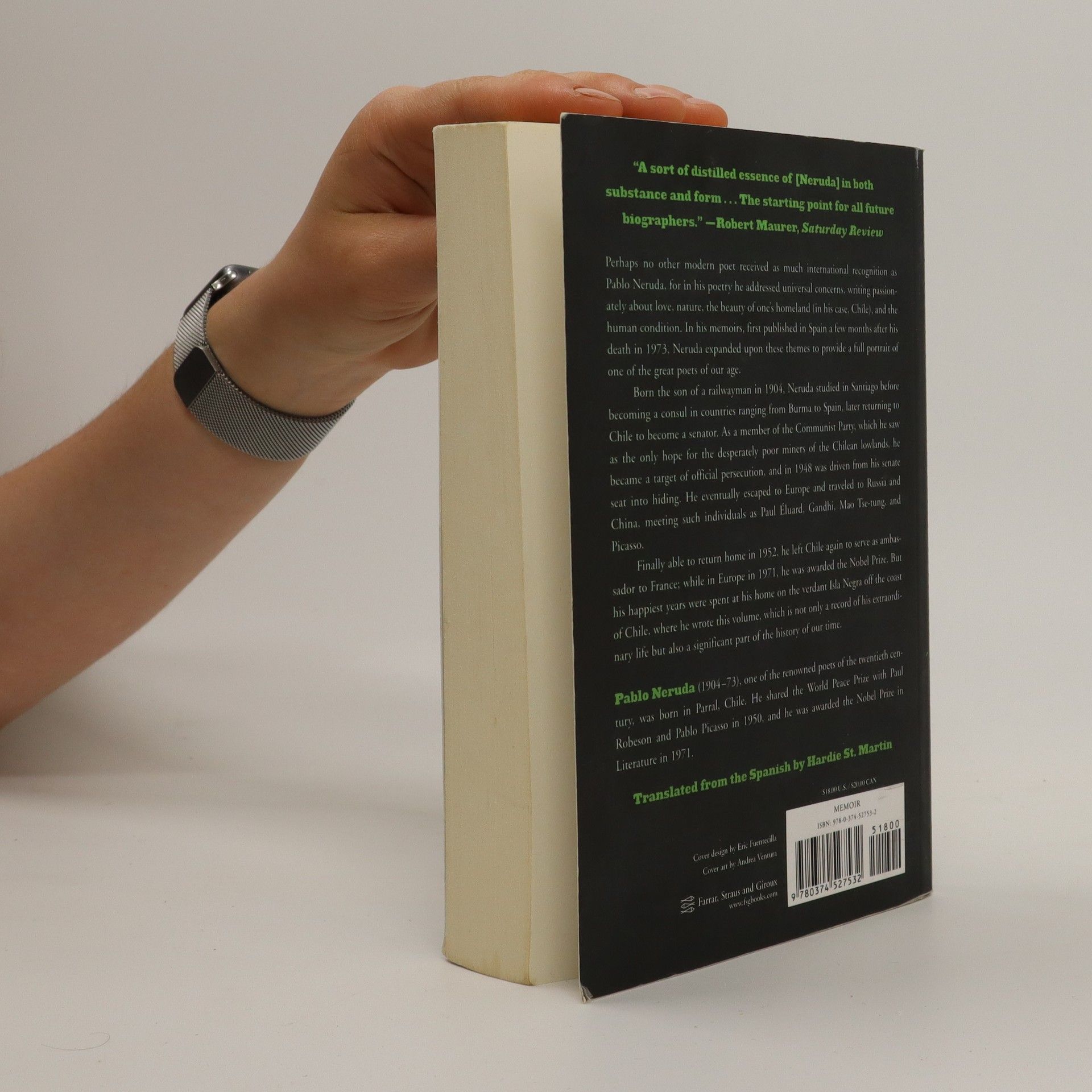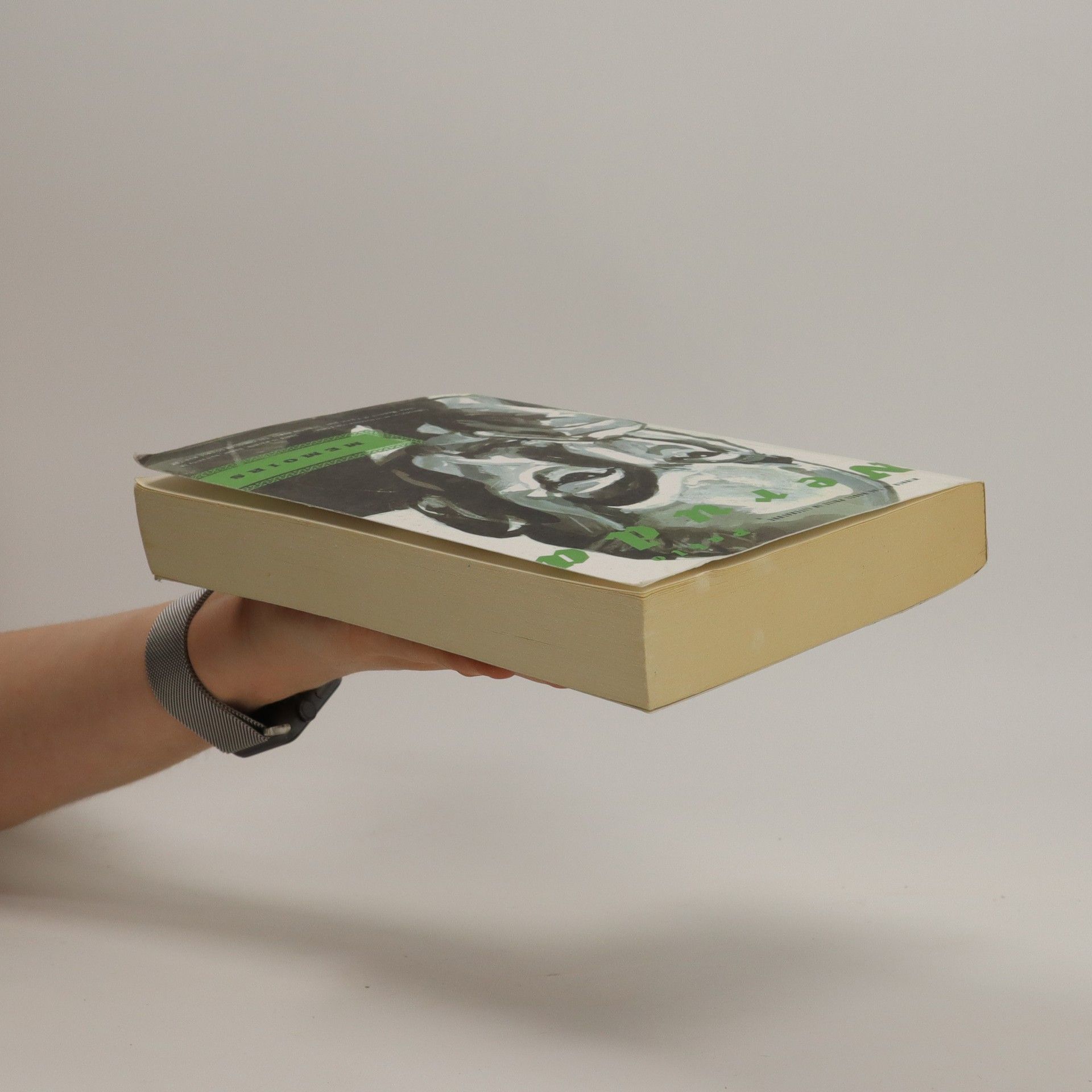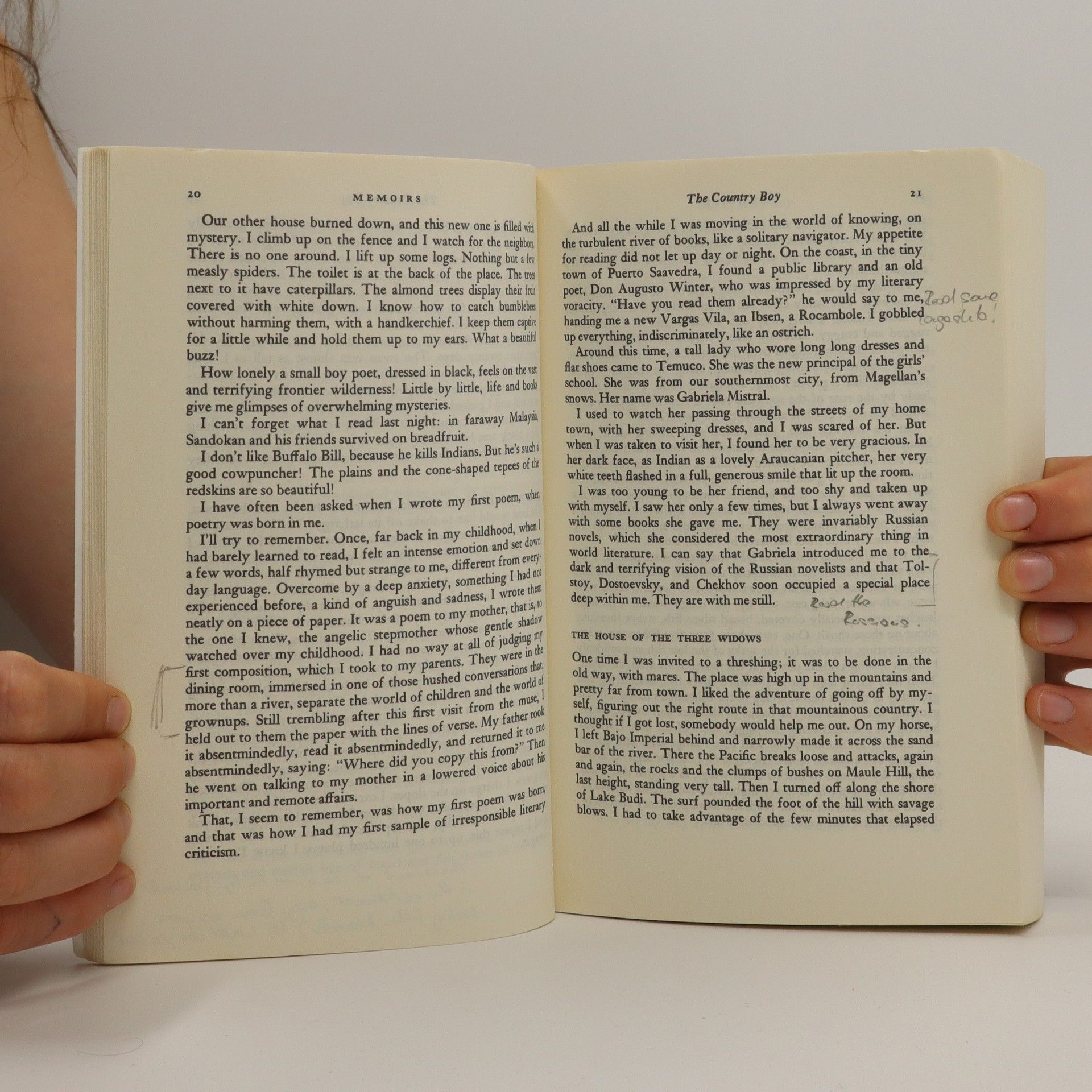Parameters
Categories
More about the book
The classic and deeply moving memoir by Pablo Neruda, the most widely read political poet of our time and winner of the Nobel Prize The south of Chile was a frontier wilderness when Pablo Neruda was born in 1904. In these memoirs he retraces his bohemian student years in Santiago; his sojourns as Chilean consul in Burma, Ceylon, and Java, in Spain during the civil war, and in Mexico; and his service as a Chilean senator. Neruda, a Communist, was driven from his senate seat in 1948, and a warrant was issued for his arrest. After a year in hiding, he escaped on horseback over the Andes and then to Europe; his travels took him to Russia, Eastern Europe, and China before he was finally able to return home in 1952. The final section of the memoirs was written after the coup in 1972 that overthrew Neruda's friend Salvador Allende. Many of the century's most important literary and artistic figures were Neruda's friends, and figure in his memoirs--Garcia Lorca, Aragon, Picasso, and Rivera, among them--and also such political leaders as Gandhi, Nehru, Mao, Castro, and Che Guevara. In his uniquely expressive prose, Neruda not only explains his views on poetry and describes the circumstances that inspired many of his poems, but he creates a revealing record of his life as a poet, a patriot, and one of the twentieth century's true men of conscience.
Book purchase
Memoirs, Pablo Neruda
- Language
- Released
- 2001
Payment methods
- Title
- Memoirs
- Language
- English
- Authors
- Pablo Neruda
- Publisher
- Farrar, Straus and Giroux
- Released
- 2001
- ISBN10
- 0374527539
- ISBN13
- 9780374527532
- Category
- World prose
- Description
- The classic and deeply moving memoir by Pablo Neruda, the most widely read political poet of our time and winner of the Nobel Prize The south of Chile was a frontier wilderness when Pablo Neruda was born in 1904. In these memoirs he retraces his bohemian student years in Santiago; his sojourns as Chilean consul in Burma, Ceylon, and Java, in Spain during the civil war, and in Mexico; and his service as a Chilean senator. Neruda, a Communist, was driven from his senate seat in 1948, and a warrant was issued for his arrest. After a year in hiding, he escaped on horseback over the Andes and then to Europe; his travels took him to Russia, Eastern Europe, and China before he was finally able to return home in 1952. The final section of the memoirs was written after the coup in 1972 that overthrew Neruda's friend Salvador Allende. Many of the century's most important literary and artistic figures were Neruda's friends, and figure in his memoirs--Garcia Lorca, Aragon, Picasso, and Rivera, among them--and also such political leaders as Gandhi, Nehru, Mao, Castro, and Che Guevara. In his uniquely expressive prose, Neruda not only explains his views on poetry and describes the circumstances that inspired many of his poems, but he creates a revealing record of his life as a poet, a patriot, and one of the twentieth century's true men of conscience.




